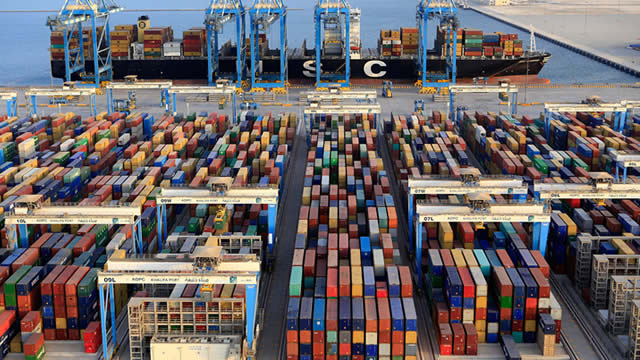SBLK Stock Recent News
SBLK LATEST HEADLINES
When deciding whether to buy, sell, or hold a stock, investors often rely on analyst recommendations. Media reports about rating changes by these brokerage-firm-employed (or sell-side) analysts often influence a stock's price, but are they really important?
In this episode of Capital Link's Trending News Webinar Series, Star Bulk Carriers SBLK President Mr. Hamish Norton offered his insights and a strategically detailed look at how the company approaches shareholder value creation through disciplined capital allocation.
Star Bulk Carriers Corp. (NASDAQ:SBLK ) Q2 2025 Earnings Conference Call August 7, 2025 11:00 AM ET Company Participants Charis Plakantonaki - Chief Strategy Officer Constantinos Simantiras - Head of Market Research Hamish Norton - President Nicos Rescos - Chief Operating Officer Simos Spyrou - Co-Chief Financial Officer Conference Call Participants Christopher Warren Robertson - Deutsche Bank AG, Research Division Omar Mostafa Nokta - Jefferies LLC, Research Division Operator Thank you for standing by, ladies and gentlemen, and welcome to the Star Bulk Carriers Conference Call on the Second Quarter 2025 Financial Results. With us today, Mr.
Star Bulk Carriers (SBLK) came out with quarterly earnings of $0.11 per share, beating the Zacks Consensus Estimate of $0.03 per share. This compares to earnings of $0.78 per share a year ago.
ATHENS, Greece, Aug. 06, 2025 (GLOBE NEWSWIRE) -- Star Bulk Carriers Corp. (the "Company" or "Star Bulk") (Nasdaq: SBLK), a global shipping company focusing on the transportation of dry bulk cargoes, today announced its unaudited financial and operating results for the second quarter of 2025. Unless otherwise indicated or unless the context requires otherwise, all references in this press release to "we," "us," "our," or similar references, mean Star Bulk Carriers Corp. and, where applicable, its consolidated subsidiaries.
Recently, Zacks.com users have been paying close attention to Star Bulk Carriers (SBLK). This makes it worthwhile to examine what the stock has in store.
Star Bulk Carriers (SBLK) closed at $18.35 in the latest trading session, marking a -1.71% move from the prior day.
Star Bulk Carriers (SBLK) possesses the right combination of the two key ingredients for a likely earnings beat in its upcoming report. Get prepared with the key expectations.
Why investors should use the Zacks Earnings ESP tool to help find stocks that are poised to top quarterly earnings estimates.
The latest trading day saw Star Bulk Carriers (SBLK) settling at $18.96, representing a +2.88% change from its previous close.









